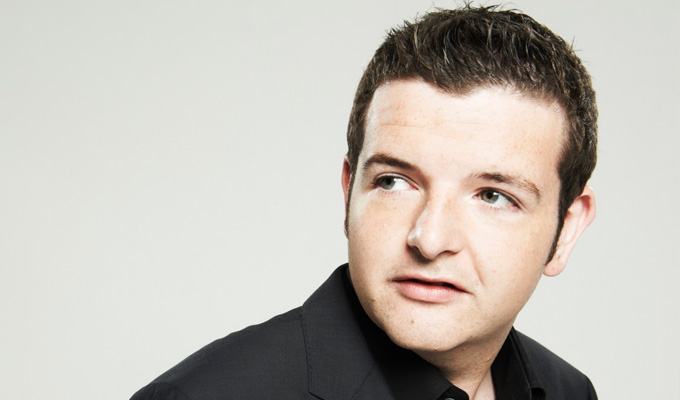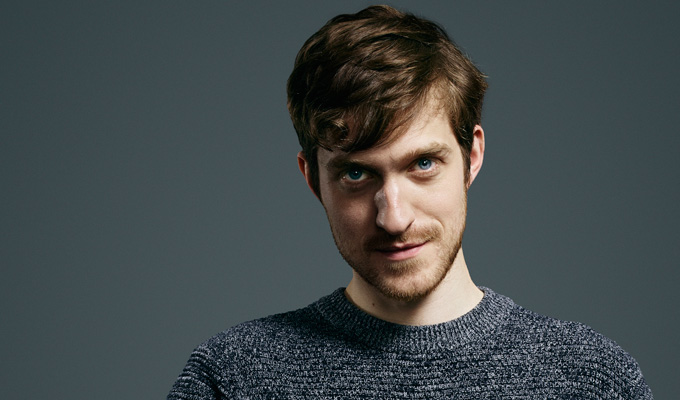
We Need To Talk About Kevin Bridges
Book review by Steve Bennett
Kevin Bridges has already gone through all the 'who on earth wants to read this?' doubts of being a young comedian writing his autobiography.
'Maybe if I'd waited a few years I wouldn't have those thoughts,' the 27-year-old writes. 'If I'd given it time to complete the necessary ascent up my own arsehole to become a real celebrity… [But] I have the advantage of still remembering the wee guy I was before you knew of me,the anxiety-ridden wee guy who worried about anything and everything.'
It may seem hard to square the comedian who seems so natural on stage in front of an arena full of people with a nervous young lad desperate to fit in with schoolmates in Clydebank. But, as even the sleeve acknowledges, every cliche about using humour as a defence against bullies and to displace insecurities features in his early life.
In what's quite a sizeable volume – almost 500 pages – Bridges describes how he'd be in floods of tears at being separated from his mum in his early school days, giving him a classroom reputation that would prove hard to shake. And as he grew up his hobbies tended towards the insular: video games or painstakingly recreating football matches with his Subbuteo set. His attempts to fit in at school by, for example, boasting of attending Celtic games, rarely ended in glory. Not good for the ego of a hypersensitive youth,
He gradually found acceptance at school by being 'the funny one', hanging out with an increasingly rambunctious gang that, while avoiding serious trouble, were clearly on that path. It certainly took a toll on his academic efforts – and the once-diligent pupil became increasingly delinquent.
The book is perhaps over-packed with youthful memories, not all of which are notable, but they gradually build up a picture of an awkward, shy outsider. It's not that remarkable a childhood in many ways and he nonetheless forged some friendships. There is also something of the Bart Simpson about how they would muck about smuggling an air-horn into Men In Black 2 or making prank calls to the takeaway opposite.
But he seemed destined for an otherwise unadventurous life, which would have made for a very unexceptional autobiography. After various academic setbacks he found himself studying an HND in business administration, nothing more than a last-ditch attempt to get into uni, while working at the Co-op, spending his wages at the local bookie.
It was at this point he had a revelation, thanks to largely to Frank Skinner's autobiography – the story of a working-class roustabout who managed to forge a huge career by working at his natural gift of being able to make people laugh struck a chord with the drifting teenager.
Bridges suddenly entertained notions of an alternative life. He saw that if he stayed on the same path he might become the tragic lonely old 'character' cracking jokes in the pub (not that he was ever a big drinker) who'd let every opportunity in life pass him by. In contrast, Skinner's tales of the rush he'd get when on stage were intoxicating.
Eventually Bridges convinced himself to give it a go, at least once. 'A normal life, that was the deal. I'd try stand-up and that was the worst that could happen. Afterwards, I'd have a normal life. It wasn't all that bad. There was far more to gain than there was to lose.'
This turning point is the most compelling section of the book as, despite having seen very little stand-up even on TV, the 17-year-old Bridges contacted The Stand comedy club in Glasgow. And they gave him a slot, on condition he bring an over-18 chaperone, who would be his dad. If this were a Hollywood movie he would have stormed the gig and his life changed forever.
 And that's exactly what happened. He vividly describes the elation, when even an audacious ad lib got a rapturous reception. 'I didn't feel in control,' he writes. 'But I didn't have a clue where it came from, it was instinct almost; the adrenaline and the warmth from the crowd had bailed me out.'
And that's exactly what happened. He vividly describes the elation, when even an audacious ad lib got a rapturous reception. 'I didn't feel in control,' he writes. 'But I didn't have a clue where it came from, it was instinct almost; the adrenaline and the warmth from the crowd had bailed me out.'
Once bitten, he knew this was his career, and he had to build on it. These subsequent chapters plod a little as he goes from one gig to the next, sometimes facing a challenge, but generally going from strength to strength until – just six years after those first uncertain steps – he's playing the 10,000 seater SECC. It's a phenomenal rise by any measure and where this book ends.
For the most part, Bridges doesn't intend to be funny in the writing, but the book is a candid primer into what made him the man he is – a personality that has proved phenomenally popular with the comedy-going public.
• We Need To Talk About Kevin Bridges is out now, priced £20. Click here to buy from Amazon for £9.
• The Chortle Comedy Book Festival takes place in Camden in London from November 7 to 14, featuring Terry Jones, Omid Djalili, Rebecca Front, Jenny Eclair, Francesca Martinez, Lucy Porter and more. Full details.
Published: 31 Oct 2014






